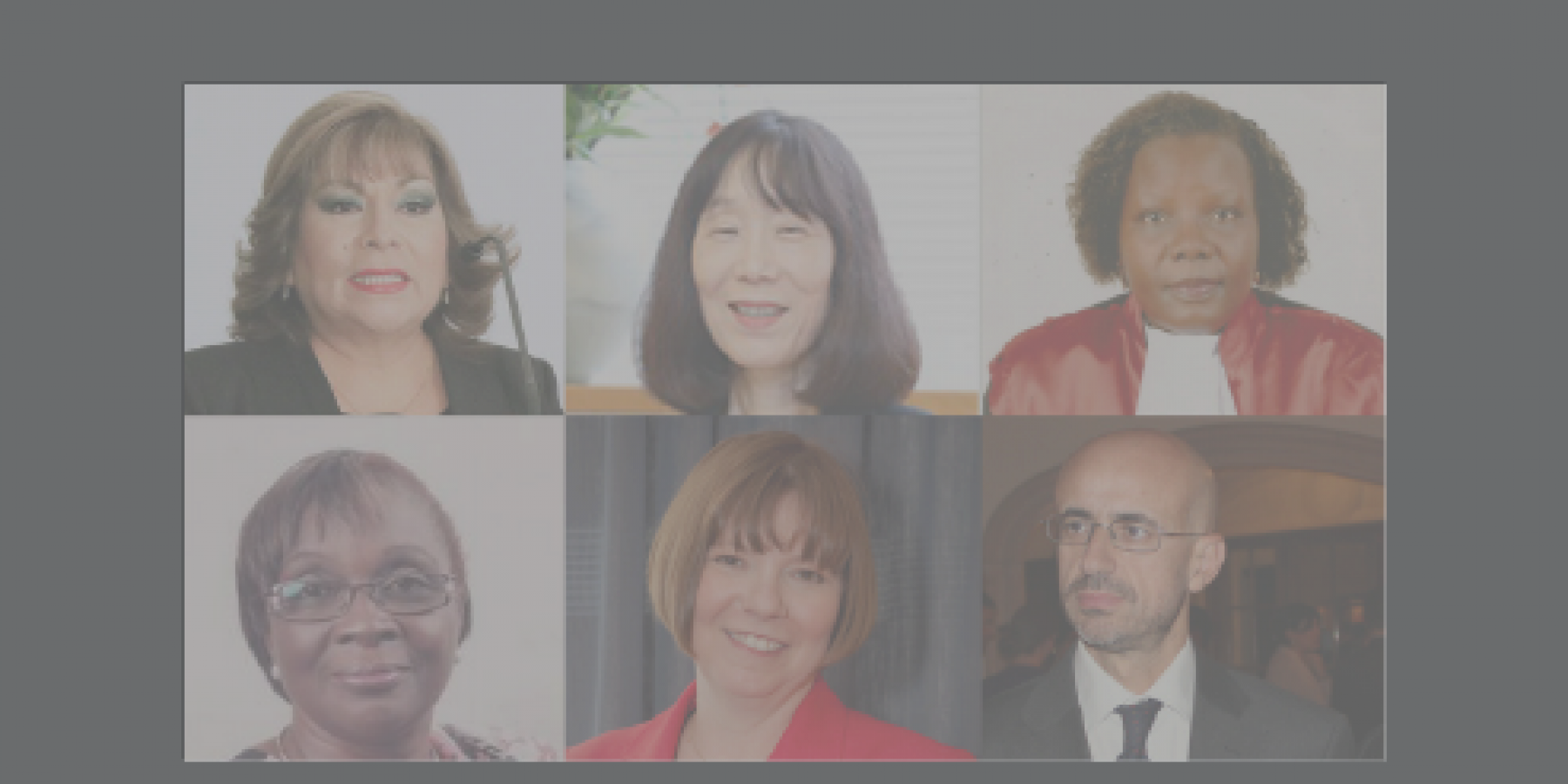States elect five women and one man to serve nine year terms as ICC judges.
As five of the six outgoing ICC judges are women, the Coalition campaigned to ensure that female candidates were nominated by states to ensure fair gender representation on the ICC bench.
We urged states to seek out the very best and most qualified female candidates to uphold this fundamental standard.
Read all about the new judges and their visions for international justice.
AITALA, Rosario Salvatore
Male | Italy (Western Europe & Others) | List A
Completed candidate questionnaire
AKANE, Tomoko
Female | Japan (Asia-Pacific) | List A
Completed candidate questionnaire
ALAPINI-GANSOU, Reine Adelaide Sophie
Female | Benin (Africa) | List B
Completed candidate questionnaire (FR)
BOSSA, Solomy Balungi
Female | Uganda (Africa) | List A
Completed candidate questionnaire
IBÁÑEZ CARRANZA, Luz del Carmen
Female | Peru (Latin America & Caribbean) | List A
Completed candidate questionnaire
PROST, Kimberly
Female | Canada (Western Europe & Others) | List A
WATCH PANEL DISCUSSIONS WITH THE CANDIDATES
ICC member states Lesotho, Uganda, Croatia, Mongolia, Benin, Japan, Bosnia, Peru, Uruguay, Canada, Ghana and Italy have nominated 12 candidates for election to six soon-to-be vacant judicial positions at The Hague-based Court.
On 18 September 2017 in The Hague we held three live panel discussions with the twelve candidates vying for judicial election to the ICC bench.
ICC JUDICIAL ELECTIONS 2017
2017: Elections for six new ICC judges
6 judicial vacancies | 9-year terms | 16th ASP session | New York, December 2017
ICC member states nominated 12 candidates for election to six vacant judicial positions at The Hague-based Court.
The election followed the Court’s regular judicial elections process, which replaces a third of the 18 judges’ bench every three years. The new judges will serve a nine-year term from March 2018.
To ensure that the ICC bench is representative of gender, geographical representation and legal expertise, each judicial election has minimum voting requirements (MVRs).
The following MVRs were in place in 2017: five female candidates; one from Asia-Pacific; one from Africa; one from Latin America and the Caribbean; one with specific expertise in criminal law and procedure (“List A”); and one with specific expertise in international law (“List B”).
For more information
Visit our old website to learn more about past elections campaigns. Information includes related papers, civil society advocacy, former candidate questionnaires, previous elections' results and more.
Or drop us a line at cicc-hague@coalitionfortheicc.org.

